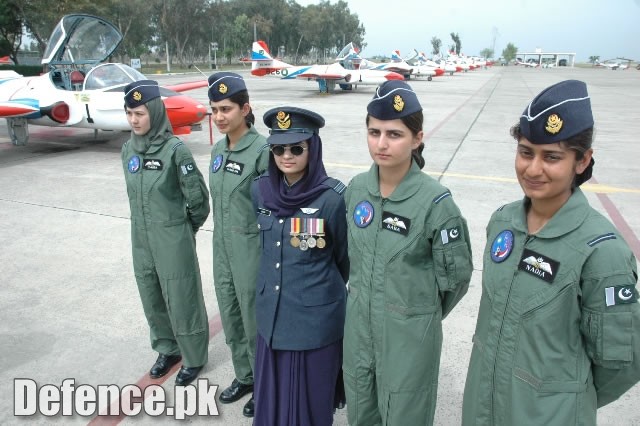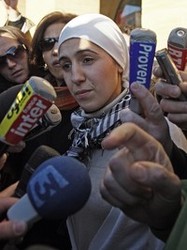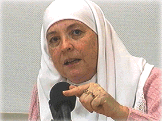I was completing a degree in Recreation, when I met my first Muslims. It was the first year that we had been able to pre-register by computer. I pre-registered and went to Oklahoma to take care of some family business. The business took longer than expected, so I returned to school two weeks into the semester (too late to drop a course).
I wasn’t worried about catching up my missed work. I was sitting at the top of my class, in my field. Even as a student, I was winning awards, in competition with professionals.
Now, you need to understand that while I was attending college and excelling, ran my own business, and had many close friends, I was extremely shy. My transcripts actually had me listed as severely reticent. I was very slow to get to know people and rarely spoke to anyone unless was forced to, or already knew them. The classes I was taking has to do administration and city planning, plus programming for children. Children were the only people I ever felt comfortable with.
Well, back to the story. The computer printout held one enormous surprise for me. I was registered for a Theatre class…a class were I would be required to perform in front of real live people. I was horrified! I could not even ask a question in class, how was I going to get on a stage in front of people? My husband was his usual very calm and sensible self. He suggested that I talk to the teacher, explain the problem, and arrange to paint scenery or sew costumes. The teacher agreed to try and find a way to help me out. So I went to class the following Tuesday.
When I entered the classroom, I received my second shock. The class was full of ‘Arabs’ and ‘camel jockeys’. Well, I had never seen one but I had heard of them.
There was no way I was going to sit in a room full of dirty heathens! After all, you could catch some dreadful disease from those people. Everyone knew they were dirty, not to be trusted either. I shut the door and went home. (Now, there is one little thing you should know. I had on a pair of leather hot pants, a halter top, and a glass of wine in my hands…but they were the bad ones in my mind.)
When I told my husband about the Arabs in the class and that there was no way I was going back, he responded in his usual calm way. He reminded that I was always claiming that God had a reason for everything and maybe I should spend some time thinking about it before I made my final decision. He also reminded me that I had a scholars award that was paying my tuition and if I wanted to keep it, I would have to maintain my G.P.A.. Three credit hours or ‘F’ would have destroyed my chances.
For the next two days, I prayed for guidance. On Thursday I went back to the class convinced that God had put me there to save those poor ignorant heathens from the fires of hell.
I proceeded to explain to them how they would burn in the fires of hell for all eternity, if they did not accept Jesus as their personal savior. They were very polite, but did not convert. Then, I explained how Jesus loved them and had died on the cross to save them from their sins. All they had to do was accept him into their hearts. They were very polite, but still did not convert. So, I decided to read their own book to show them that Islam was a false religion and Mohammed was a false God.
One of the students gave me a copy of the Qur’an and another book about Islam, and I proceeded with my research. I was sure I would find the evidence I needed very quickly. Well, I read the Qur’an and the other book. Then I read another 15 books, Sahih Muslim and returned to the Qur’an. I was determined I would convert them! My studies continued for the next one and half years.
During that time, I started having a few problems with my husband. I was changing, just in little ways but enough to bother him. We used to go to the bar every Friday and Saturday, or to a party, and I no longer wanted to go. I was quieter and more distant. He was sure I was having an affair, so he kicked me out. I moved into an apartment with my children and continued my determined efforts to convert the Muslims to Christianity.
The, one day, there was a knock on my door. I opened the door and saw a man in a long white night gown with a red and white checkered table cloth on his head. He was accompanied by three men in pajamas. (It was the first time I had ever seen their cultural dress.) Well, I was more than a little offended by men showing up at my door in night clothes. What kind of a woman did they think I was? Had they no pride or dignity? Imagine my shock when the one wearing the table cloth said he understood I wanted to be a Muslim! I quickly informed him I did not want to be a Muslim. I was Christian. However, I did have a few questions. If he had the time….
His name was Abdul-Aziz Al-Shiek and he made the time. He was very patient and discussed every question with me. He never made me feel silly or that a question was stupid. He asked me if I believed there was only one God and I said yes. Then he asked if I believed Mohammed was His Messenger. Again I said yes. He told me that I was already a Muslim!.
I argued that I was Christian, I was just trying to understand Islam. (Inside I was thinking: I couldn’t be a Muslim! I was American and white! What would my husband say? If I am Muslim, I will have to divorce my husband. My family would die!)
We continued talking. Later, he explained that attaining knowledge and understanding of spirituality was a little like climbing a ladder. If you climb a ladder and try to skip a few rungs, there was danger of falling. The Shahadah was just the first step on the ladder. Still we had to talk some more.
Later that afternoon, May 21, 1977 at Asr’, I took Shahadah. However, there were still some things I could not accept and it was my nature to be completely truthful so i added a disclaimer. I said: “I bear witness that there is no god but God and Mohammed is His Messenger” ‘but, I will never cover my hair and if my husband takes another wife, I will castrate him.’
I heard gasps from the other men in the room, but Abdul Aziz silenced them. Later I learned that he told the brothers never to discuss those two subjects with me. He was sure I would come to the correct understanding.
The Shahadah was indeed a solid footing on the ladder to spiritual knowledge and closeness to God. but it has been a slow climb. Abdul Aziz continued to visit me and answer my questions. May Allah reward him for his patience and tolerance. He never admonished me or acted like a question was stupid or silly. He treated each question with dignity and told me that the only stupid question was the one never asked. Hmmm…my grandmother used to say that.
He explained that Allah ahd told us to seek knowledge and questions were one of the ways to accomplish that. When he explained something, it was like watching a rose open – petal by petal, until it reached its full glory. When I told him that I did not agree with something and why, he always said I was correct up to a point. The he would show me how to look deeper and from different directions to reach a fuller understanding. Alhamdulillah!
Over the years, I had many teachers. Each one special, each one different. I am thankful for each one of them and the knowledge they gave. Each teacher helped me to grow and to love Islam more. As my knowledge increased, the changes in me became more apparent. Within the first year, I was wearing hijab. I have no idea when I started. It came naturally, with increased knowledge and understanding. In time I even came to to a proponent of polygamy. I knew that if Allah had allowed it, there had to be something good in it.
“Glorify the name of thy Guardian – Lord Most High, Who hath created, and further, given order and proportion; Who hath measured, and granted guidance; and Who bringeth out the (green and lush) pasture, and doth make it (but) swarthy stubble, By degrees shall We teach thee (The Message), so thou shalt not forget, except as Allah wills: for He knoweth what is manifest and what is hidden. And We will make it easy for thee (to follow) the simple (path).” (Al-A’la 87:1-8)
When I first started to study Islam, I did not expect to find anything that I needed or wanted in my personal life. Little did I know that Islam would change my life. No human could have ever convinced me that I would finally be at peace and overflowing with love and joy because of Islam.
This book spoke of THE ONE GOD, THE CREATOR OF THE UNIVERSE. It described the beautiful way in which He had organised the world. This wondrous Qur’an had all the answers. Allah is The Loving! Allah is the Source of Peace! Allah is the Protector! Allah is the Forgiver! Allah is the Provider! Allah is the maintainer! Allah is the Generous One! Allah is the Responsive! Allah is the Protecting Friend! Allah is the Expander!
“Have we not expanded thee thy breast? And removed from thee thy burden the which did gall thy back? And raised high the esteem (in which) thou (art held)? So, verily, with every difficulty, there is relief: Verily, with every difficulty there is relief!” (Al-Ishirah, 94: 1-6)
The Qur’an addressed all the issues of existence and showed a clear path to success. It was like a map forgiving, an owner manual for life!
How Islam changed my Life
“How much more we love the light…If once we lived in Darkness.”
When I first embraced Islam, I really did not think it was going to affect my life very much. Islam did not just affect my life. It totally changed it.
Family life: My husband and I loved each other very deeply. That love for each other still exists. Still, when I started studying Islam, we started having some difficulties. He saw me changing and did not understand what was happening. Neither did I. But then, I did not even realise I was changing. He decided that the only thing that could make me change was another man. There was no way to make him understand what was changing me because I did not know.
After I realised that I was a Muslim, it did not help matters. After all…the only reason a woman changes something as fundamental as her religion is another man. He could not find evidence of this other man…but he had to exist. We ended up in a very ugly divorce. The courts determined that the unorthodox religion would be detrimental to the development of my children. So they were removed from my custody.
During the divorce, there was a time when I was told I could make a choice. I could renounce this religion and leave with my children, or renounce my children and leave with my religion. I was in shock. To me this was not a possible choice. If I renounce my Islam….I would be teaching my children how to be deceptive. For there was no way to deny what was in my heart. I could not deny Allah, not then, not ever. I prayed like I had never prayed before. After the thirty minutes was up, I knew that there was no safer place for my children to be than in the hands of Allah. If I denied him, there would be no way in the future to show my children the wonders of being with Allah. The courts were told that I would leave my children in the hands of Allah. This was not a rejection of my children!
I left the courts knowing that life without my babies would be very difficult. My heart bled, even though I knew, inside, I had done the right thing. I found solace in Ayat-Ul-Khursi.
“Allah! There is no god but He – the Living, the Self-subsisting, Supporter of all. No slumber can seize him nor sleep. His are all things in the heavens and on earth. Who is there can intercede in His presence except as He permitteth? He knoweth what (appeareth to His creatures as) Before or After or Behind them. Nor shall they compass aught of His knowledge except as He willeth. His Throne doth extend over the heavens and the earth, and he feeleth no fatigue in guarding and preserving them for He is Most High, The Supreme (in Glory).” (Al-Baqarah, 2:255)
This also got me started looking at all the attributes of Allah and discovering the beauty of each one.
Child custody and divorce were not the only problems I was to face. The rest of my family was not very accepting of my choice either. Most of the family refused to have anything to do with me. My mother was of the belief that it was just a phase and I would grow out of it. My sister, the ‘mental health expert’ was sure I had simply lost my mind and should be institutionalised. My father believed I should be killed before placed myself deeper in Hell. Suddenly I found myself with no husband and no family. What would be next?
Friends: Most of my friends drifted away during that first year. I was no fun anymore. I did not want to go to parties or bars. I was not interested in finding a boyfriend. All I ever did was read that ‘stupid’ book (the Qur’an) and talk about Islam. What a bore. I still did not have enough knowledge to help them understand why Islam was so beautiful.
Employment: My job was next to go. While I had won just about every award there was in my field and was recognised as a serious trend setter and money maker, the day I put on hijab, was the end of my job. Now I was without a family, without friends and without a job.
In all this, the first light was my grandmother. She approved of my choice and joined me. What a surprise! I always knew she had alot of wisdom, but this! She died soon after that. When I stop to think about it, I almost get jealous. The day she pronounced Shahadah, all her misdeeds had been erased, while her good deeds were preserved. She died so soon after accepting Islam that I knew her ‘BOOK’ was bound to be heavy on the good side. It fills me with such joy!
As my knowledge grew and I was better able to answer questions, many things changed. But, it was the changes made in me as a person that had the greatest impact. A few years after I went public with my Islam, my mother called me and said she did not know what this ‘Islam thing’ was, but she hoped I would stay with it. She liked what it was doing for me. A couple of years after that she called again and asked what a person had to do to be a Muslim. I told her that all person had to do was know that there was only ONE God and Mohammed was His Messenger. Her response was: “Any fool knows that. But what do you have to do?” I repeated the same information and she said: “Well…OK. But let’s not tell your father just yet.”
Little did she know that he had gone through the same conversation a few weeks before that. My real father (the one who thought I should be killed) had done it almost two months earlier. Then, my sister, the mental health person, she told me that I was the most ‘liberated’ person she knew. Coming from her that was the greatest compliment I could have received.
Rather than try to tell you about how each person came to accept Islam, let me simply say that more members of my family continue to find Islam every year. I was especially happy when a dear friends, Brother Qaiser Imam, told me that my ex-husband took Shahdah. When Brother Qaiser asked him why, he said it was because he had been watching me for 16 years and he wanted his daughter to have what I had. He came and asked me to forgive him for all he had done. I had forgiven him long before that.
Now my oldest son, Whittney, has called, as I am writing this book, and announced that he also wants to become Muslim. He plans on taking the Shahadah as the ISNA Convention in a couple of weeks. For now, he is learning as much as he can. Allah is The Most Merciful.
Over the years, I have come to be known for my talks on Islam, and many listeners have chosen to be Muslim. My inner peace has continued to increase with my knowledge and confidence in the Wisdom of Allah. I know that Allah is not only my Creator but, my dearest friend. I know that Allah will always be there and will never reject me. For every step I take toward Allah, He takes 10 toward me. What a wonderful knowledge.
True, Allah has tested me, as was promised, and rewarded me far beyond what I could ever have hoped for. A few years ago, the doctors told me I had cancer and it was terminal. They explained that there was no cure, it was too far advanced, and proceeded to help prepare me for my death by explaining how the disease would progress. I had maybe one year left to live. I was concerned about my children, especially my youngest. Who would take care of him? Still I was not depressed. We must all die. I was confident that the pain I was experiencing contained Blessings.
I remembered a good friend, Kareem Al-Misawi, who died of cancer when he was still in his 20’s. Shortly before he died, he told me that Allah was truly Merciful. This man was in unbelievable anguish and radiating with Allah’s love. He said: “Allah intends that I should enter heaven with a clean book.” His death experience gave me something to think about. He taught me of Allah’s love and mercy. This was something no one else had ever really discussed. Allah’s love!
I did not take me long to start being aware of His blessings. Friends who loved me came out of nowhere. I was given the gift of making Hag. Even more importantly, I learned how very important it was for me to share the Truth of Islam with everyone. It did not matter if people, Muslim or not, agreed with me or even liked me. The only approval I needed was from Allah. The only love I needed was from Allah. Yet, I discovered more and more people, who for no apparent reason, loved me. I rejoiced, for I remembered reading that if Allah loves you, He causes others to love you. I am not worthy of all the love. That means it must be another gift from Allah. Allah is the Greatest!
There is no way to fully explain how my life changed. Alhamdulillah! I am so very glad that I am a Muslim. Islam is my life. Islam is the beat of my heart. Islam is the blood that courses through my veins. Islam is my strength. Islam is my life so wonderful and beautiful. Without Islam, I am nothing and should Allah ever turn His magnificent face from me I could not survive.
“O Allah! let my heart have light, and my sight have light, and my hearing (senses) have light, and let me have light on my right, and let me have light on my left, and let me have light above me, and have light under me, and have light in front of me, and have light behind me; and let me have light.” (Bukhari, vol. 8. pp. 221, #329)
“Oh my Lord! Forgive my sins and my ignorance and my exceeding the limits (boundaries of righteousness) in all my deeds and what you know better than I. O Allah! Forgive my mistakes, those done intentionally or out of my ignorance or (without) or with seriousness, and I confess that all such mistakes are done by me. Oh Allah! Forgive my sins of the past and of the future which I did openly or secretly. You are the One who makes the things go before, and You are the One who delays them, and You are the Omnipotent.” (Bukhari, vol. , pp. 271, #407)










